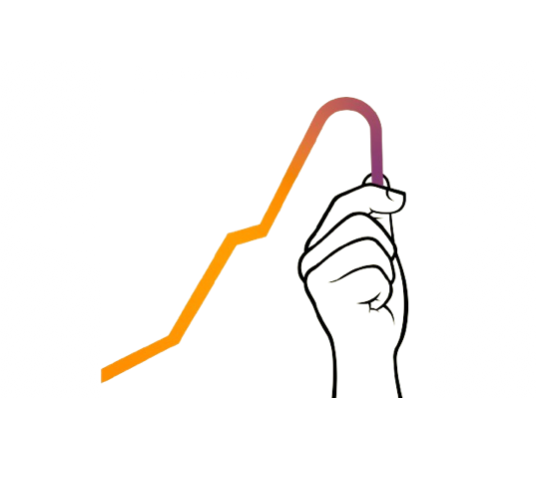A lot of people’s morning starts with hearing the tone “Gari wala aaya ghar se kachra nikal” including mine. But do we ever think before emptying our waste bins, about, what happens to all the waste once it leaves our home? India produces 277 million tonnes of municipal solid waste every year, according to a 2016 estimate. Out of which 77% of the waste is disposed of in open dumps, 18% is composed and just 5% is recycled.1 The purpose of waste management is to reduce the harmful effects of waste on human health and the environment. The main principle of waste management is the strategy of ‘reduce, reuse, recycle’ which aims at minimising the generation of waste. Each one of us needs to understand our duty as waste generators with an increase in the quantity of waste being generated in each household. While many of us might be familiar with the environmental impacts of waste mismanagement, there’s still another part of the problem that needs to be addressed: its effects on humans. Uncontrolled disposal generates serious heavy metals pollution occurring in the water, soil, and plants, open burning releases harmful gases and other pollutant emissions that affect the atmosphere, waste picking within open dumpsites pose to serious health risk for people working on these areas.2 We can make the process of waste management more effective and safer if each one of us is a little more conscious of our actions.
The first person to come in contact with the waste generated is the waste collectors/pickers. They are often who are affected by the mixed wastes because most of the activities in the waste management process from the collection, segregation to dismantling is manually done by them. Also affected are the ragpickers who often fish out recyclable items such as plastic and cardboard from the waste dumping grounds with their bare hands. This group of people are in most cases not very educated and thus lack basic knowledge about self-protection and leading to occupational injuries. Overall, workers in the solid waste sector including informal waste pickers are vulnerable to three major health risks: accidents, infection, and chronic diseases.3 Other risks to which the waste collectors are exposed while working on the landfills are mechanical, ergonometric, chemical, biological and environmental risks.4 Accidents could lead to injury or death and could be caused by heavy equipment, trucks, holding recyclable materials, fire outbreaks, falling from heights when dumping face is high, and buried in the waste.3 Waste collectors are more prone to accidents when they do not wear protective gears while handling the waste or using the machinery. When the waste generators don’t segregate their waste and dispose of sharp objects like blades, knives, glass pieces, sanitary pads or diapers with human faeces without any proper measures. Then the waste collectors can come in direct contact in the absence of protective equipment and become vulnerable to injuries and infection.
Infections are caused by direct contact with waste and infected wound, infected dust, bites from wild animals, and enteric infections transmitted by insects feeding on waste.3 Biological risks faced by waste pickers on the landfills refer to infections resulting from consuming bad food and drinking polluted water, and coming into contact with faecal matter, blood, bodily fluids, animal flesh, and dead and live infected animals such as rodents. Chronic diseases including chronic respiratory diseases result from exposure to dust and toxic and carcinogenic risks as a result of exposure to hazardous compounds, cardiovascular disorders, and heat stress due to exposure to excessive temperature, and hearing function loss result from exposure to excessive noise. Waste pickers are susceptible to tuberculosis and hepatitis. Most of the aforementioned incidents frequently occur in most businesses, when training programmes are not regularly implemented.3 Ergonomics (working environment) has a huge impact on the health of the waste collectors. Musculoskeletal risks are high among them due to work activities such as heavy lifting, manual handling, prolonged bending and repetitive tasks.5
Solid waste collection is an occupation that involves substantial risk to the safety and health of the waste collectors. Whether it be consumers being exposed to potentially dangerous chemicals or waste collectors facing hazardous work conditions, more work and attention is needed for these issues. All the ministries and concerned officials need to be aware of their duties and responsibilities for the same. Community awareness is the first step towards minimising waste mismanagement. Also, continuous training needs to be provided to the waste collectors by the municipal corporations and private organisations to avoid accidents and infection.
- http://timesofindia.indiatimes.com/articleshow/74454382.cms?utm_source=contentofinterest&utm_medium=text&utm_campaign=cppst_prime
- https://www.mdpi.com/1660-4601/16/6/1060
- https://www.hindawi.com/journals/jeph/2020/3780431/
- https://www.ncbi.nlm.nih.gov/pmc/articles/PMC6603953/#:~:text=The%20results%20showed%20that%20the,their%20living%20and%20working%20spaces.
- https://bmjopen.bmj.com/content/5/9/e008474

